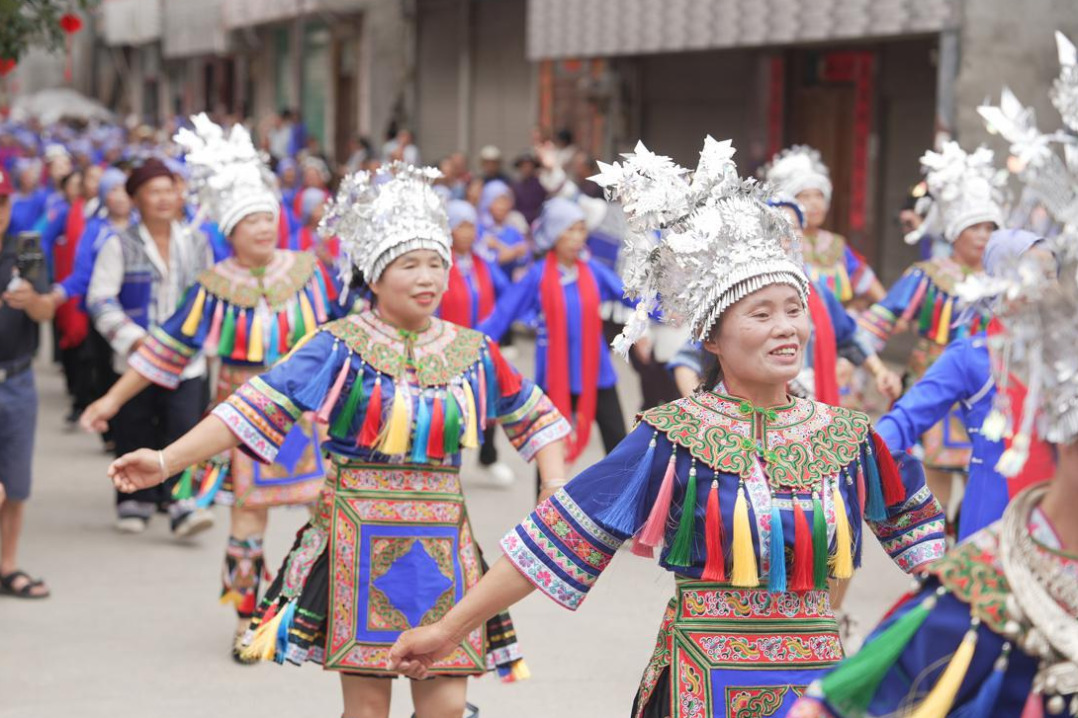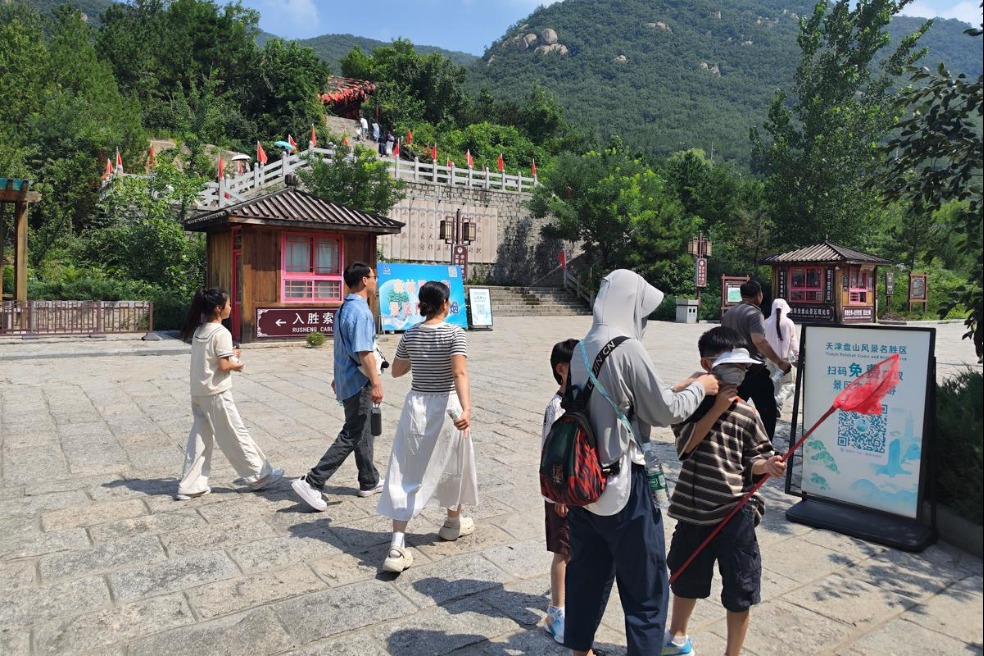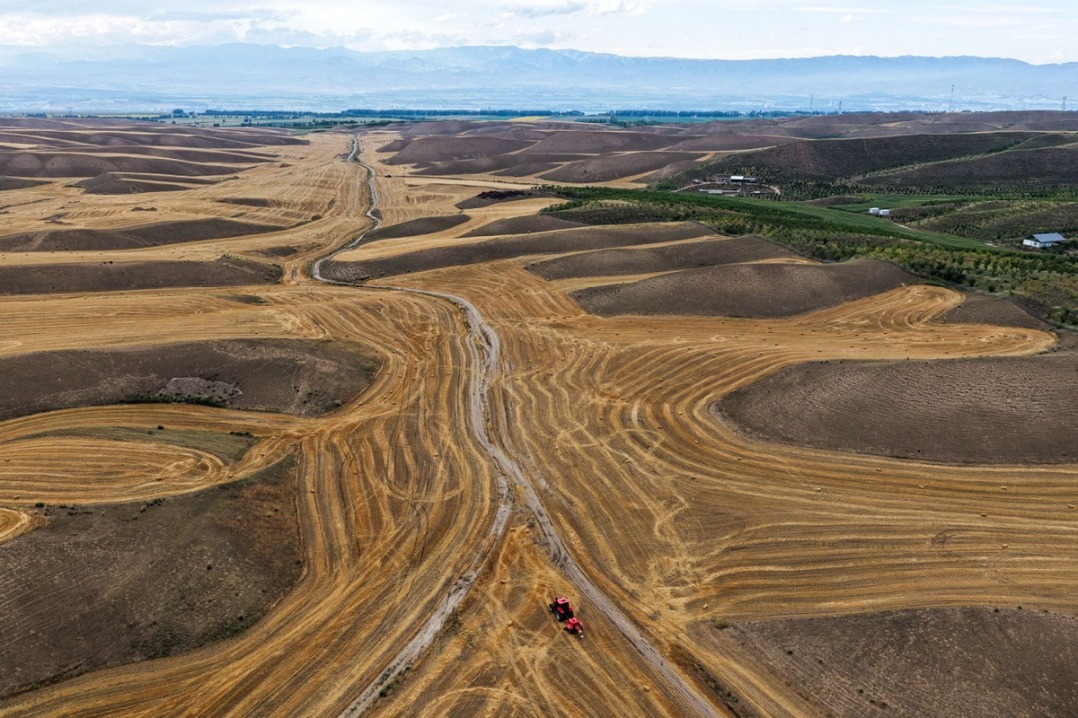Western China leads fight against poverty

YINCHUAN - Poverty, water scarcity and barren lands are what many associate with western China's mountainous areas. However in the county of Xiji, one of the poorest regions in China, people are finding ways to develop while being environmentally friendly.
Seven years ago, Shanghai resident Xu Jinguo came to Xiji in northwestern China's Ningxia Hui Autonomous Region as he noticed fast development in the region. He was later hired as a manager by Xiangfeng Company in a village surrounded by mountains.
"We raise hundreds of Angus cattle and grow vegetables that adapt to cool weather, such as potatoes, corn, tomatoes, cucumbers and celery," Xu said. "The large temperature difference between day and night leads to fewer pests and disease, and sweeter food."
Established in 2014, the company cooperates with local farmers by teaching crop-growing skills, extending sales and providing jobs.
"I no longer need to worry about the outlet of my potatoes as the farm offers more opportunities," said Su Xianggen, a local potato-grower.
Su said that he made more than 70,000 yuan (10,724 U.S. dollars) a year with 24 hectares of land and was now considering other breeds of potatoes with advanced irrigation of water and fertilizer.
Xu told Xinhua that the company went to the China-Arab States Expo in Yinchuan, capital of Ningxia, in early September to help export its crops abroad.
"Traditional agriculture used to totally depend on weather conditions.People worked hard but it was difficult to make money," Xu said.
Xu said that the company aimed to build a modern agricultural farm within five years and attract tourists to experience rural life.
Due to government plans such as turning cultivated land into grassland and banning mountain herding, the ecological environment has recovered since 2009.
A remote village in Xiji, Longwangba, used to be mere bad lands, but now is popular for travelers to spend the summer.
In 2010, Jiao Jianpeng, 29, gave up his company in the city that was earning more than 1 million yuan a year and returned to his hometown to set up an ecological tourism company, covering farming, vegetable and fruit picking, accommodation and entertainment.
The village has now accepted more than 100,000 tourists with a total revenue of nearly 10 million yuan a year.
"My family and friends opposed it when they first heard that I would return to my hometown. They thought I was an idiot to come back," said JiaoJianpeng. "However, I listened to my inner heart and believed that good ecology was the potential for development and that I would find a way out."
Many villagers saw the development of countryside tourism and chose to stay in the village.
Jiao Bingnan, a villager in Longwangba, turned his house into a homestay and earned more than 20,000 yuan.
"With tourist development, the village has better social facilities including roads, tap water and street lamps," Jiao Bingnan said.
Xiji is located in an old revolutionary base where many ethnic minorities gathered. Xiji and other eight county-level regions are on China's list of 14 areas of abject poverty. It has received high attention from the central government and was visited by senior leaders.
According to the Xiji government, 78,900 escaped poverty from 2014 to 2016, and 111 villages are no longer classed as poor. The average net income per farmer grew to 7,566 yuan in 2016 from 6,222 yuan in 2014. In 2016, the county's GDP totaled 5.55 billion yuan.
China has set 2020 as the target year to complete the building of a moderately prosperous society, requiring the complete eradication of poverty.
As of the end of 2016, there were still 43.35 million people in China living below the country's poverty line of 2,300 yuan per year constant with 2010 prices, accounting for about 3 percent of China's population.
To achieve its target, China needs to bring more than 10 million people out of poverty every year. That is about 20 people per minute. It is a big task, but China remains confident it will deliver.
- Over 1,000 martial arts practitioners compete in Tianjin competition
- East China's Fujian activates flood emergency response
- Northwest China's Gansu upgrades mountain torrent alert to orange
- Distinguished German brewer explains why he now calls Liaoning home
- China activates level-IV emergency response for flood control in Gansu, Qinghai, Ningxia
- Guangdong activates emergency response for flood





































